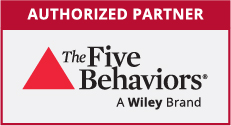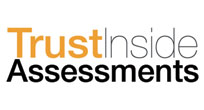The Wiley Workplace Intelligence Annual Report
Much like the years preceding it, 2023 brought rapid change and innovation to the workplace. A year marked by technological advancement and continued attempts to recalibrate after the disruption of the pandemic, 2023 represented a year of transition.
Wiley Workplace Intelligence spent the year investigating the important issues that emerged in organizations. From the early adoption of artificial intelligence to the omnipresent hybrid/remote/office debate to psychological safety, Wiley’s annual report brings you a review of the most notable insights from the year at work.
10. Well-Being Positively Impacts Performance
Wiley sought to learn more about what it means to be a leader in a workplace with an increasing focus on the balance of well-being and achieving results. The evolution of leadership from the outdated “command and control” model to a more people-focused approach put unique pressure on those in the middle: managers.
It’s clear that managers are in an increasingly complicated role. While the Wiley survey respondents reported facing multiple challenges, balancing employee satisfaction and productivity ranked the highest at 31%, though Wiley found the increased focus on well-being positively impacted performance throughout the organization.
Well-Being and Results: How Managers Can Pave the Way
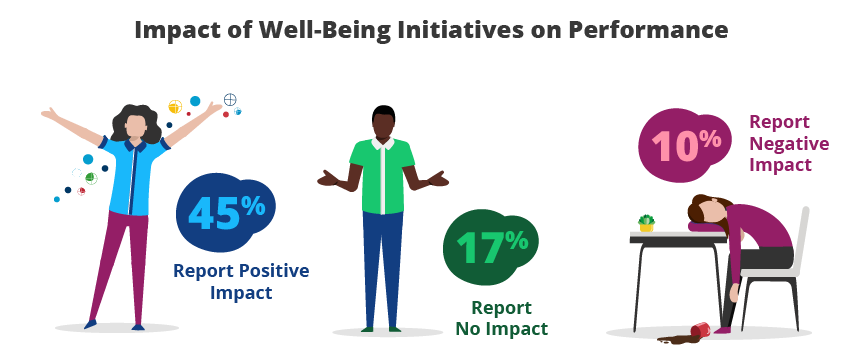
9. AI Is Not Ready to Replace Humans When It Comes to Learning and Development
While advancements in artificial intelligence (AI) have evolved since research earlier in the year, Wiley found that over half (64%) of the survey respondents agreed that using AI for administrative tasks increased efficiency.
Knowing people seek human connection when learning, learning and development practitioners should consider ways to continue meeting that need while incorporating technological advances into their practice. Combining AI capabilities and human interaction can be an effective way to embrace technological advancements while retaining the personal connection.
Artificial Intelligence in Learning and Development: 5 Surprising Facts You Need to Know
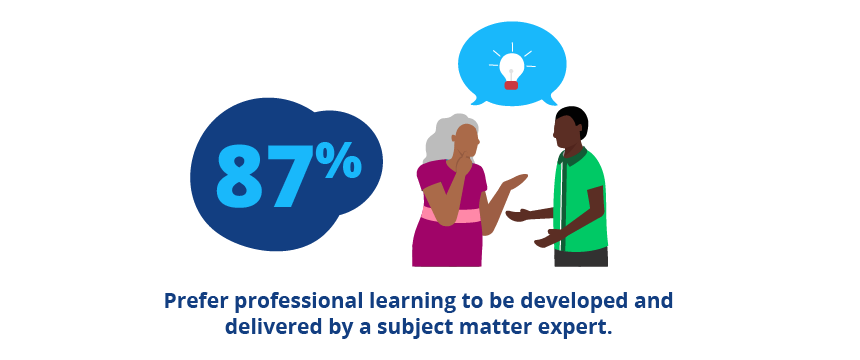
8. Where You Work Doesn’t Impact Organizational Culture
There was much ado made about the return-to-office push that many organizations made in 2023. There were concerns about the impacts remote work was making on organizational culture and many companies moved from completely remote to hybrid models or even required a full return to the office.
Wiley’s research found that location doesn’t have as big of an impact as one would expect when it comes to creating a positive workplace culture. Instead, the research found that feeling connected and experiencing a sense of belonging is more critical to creating a positive culture than simply occupying the same physical space.
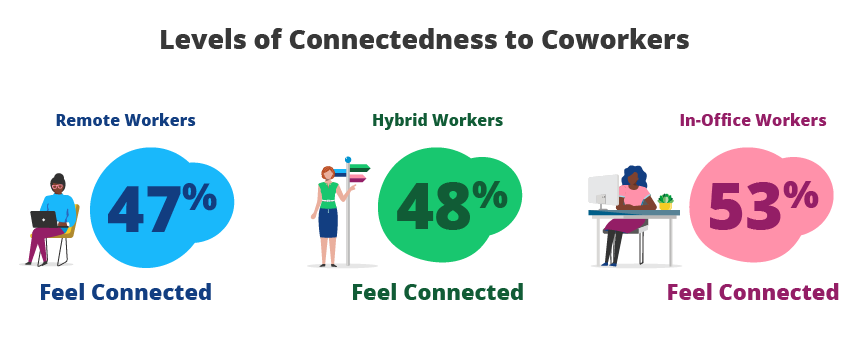
7. Upskilling Employees Fills the Widening Skills Gaps
In the years since the start of the pandemic and in the wake of The Great Resignation, organizations risked facing unexpected skills gaps within their workforce.
Wiley’s research showed that most organizations didn’t have a clearly identified process or plan for identifying current skills gaps. However, almost half (42%) reported that technical skills were the most critical missing “hard” skill with interpersonal skills following at 36%.
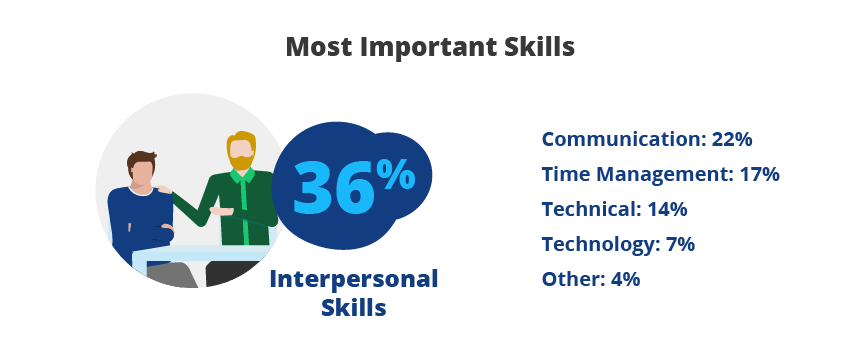
6. Managers Lack Training on How to Manage Conflict
The sentiments towards conflict in the workplace have slowly changed and Wiley was curious to know whether managers have the tools they need to help their people navigate interpersonal conflict.
It is no surprise that managers struggle to manage employee conflict since only 57% report receiving training in the area. Wiley found that there is a lot of room for improvement in organizations when it comes to equipping managers with the tools they need to navigate conflict in a healthy way.
Employee Conflict: Do Managers Have the Tools They Need?
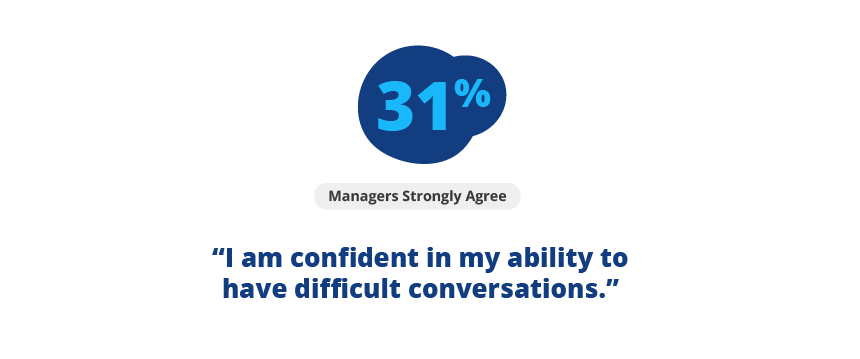
5. Generations Have More in Common than Not
There has been a lot of attention paid to the increasing number of generations currently in the workforce. From the tech savvy and ambitious Gen Z-ers to the more analog and experienced baby boomers, with Gen X and millennials in between, the differing needs of the generations continues to be a hot topic in the world of learning and development.
Wiley sought to get to the bottom of how one’s generation informs their experience at work and we found that, surprisingly, respondents largely feel understood by other generations regardless of the generation they belong to. Wiley’s research also provided some interesting information on the priorities of the different generations.
Four Generations at Work: The Unexpected Truth
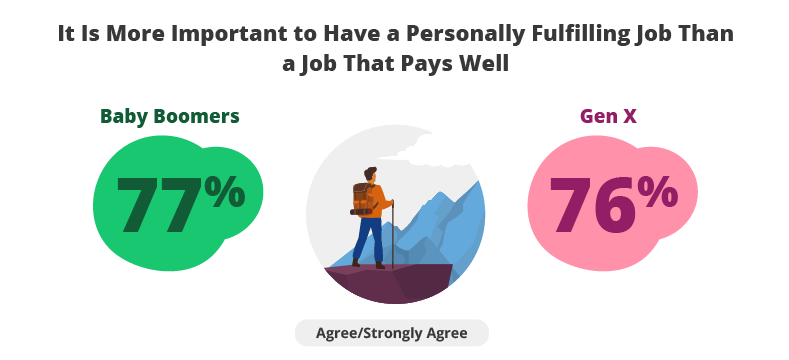
4. Individual Contributors Feel Less Safe than Executives Taking Risks at Work
Wiley set out to understand more about psychological safety in the workplace today. A psychologically safe environment, as defined by Amy Edmondson of Harvard Business School, is an environment where individuals feel comfortable taking risks, expressing ideas and concerns, asking questions, and admitting mistakes without fear of negative consequences.
Wiley found that executives feel psychologically safe, which is great, but managers and individual contributors feel less so. There is much work to be done to close that gap in organizations.
Psychological Safety at Work: The Key to Success and How to Get It
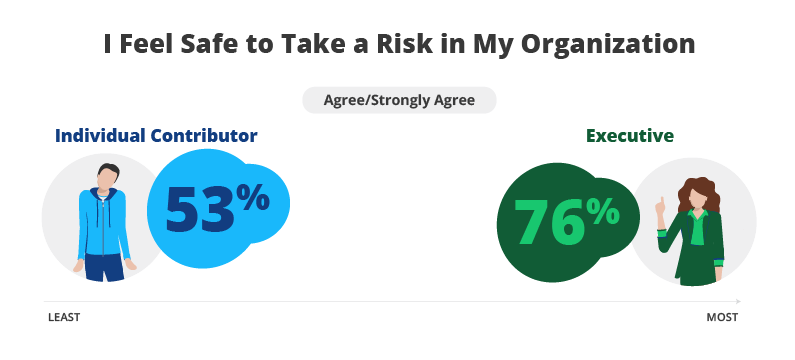
3. Communication Has a Direct Impact on Engagement
The Great Gloom was a trend that emerged at the end of the year. Marked by increased disengagement, feelings of apathy, and a lack of connection to both their work and organization, individuals have reported even higher levels of disengagement than during the pandemic.
Wiley found that the frequency and kind of communication that happens in your organization has a direct impact on the engagement, morale, and productivity of your people.
Three Communication Insights to Turn The Great Gloom Into The Great Bloom
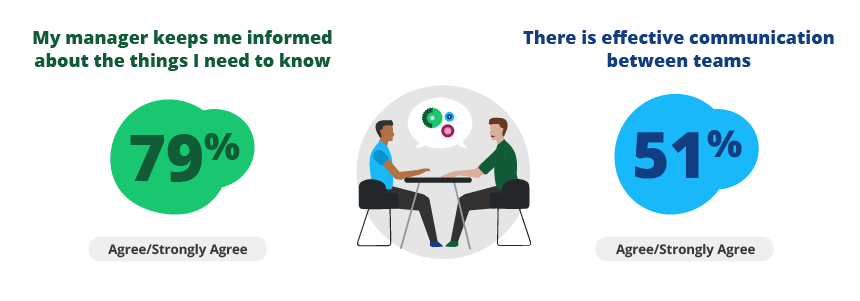
2. Communication Is the Most Important Quality in a Leader
Wiley’s respondents were asked what qualities they seek in a leader, and their answers provide actionable insight into what people are wanting from their leaders today. ‘Communicates effectively’ topped the list with 33% of respondents ranking it first.
It’s clear that there is a need for more skills in the areas of communication and relationship building in order to increase psychological safety across all levels of an organization.
Psychological Safety at Work: The Key to Success and How to Get It
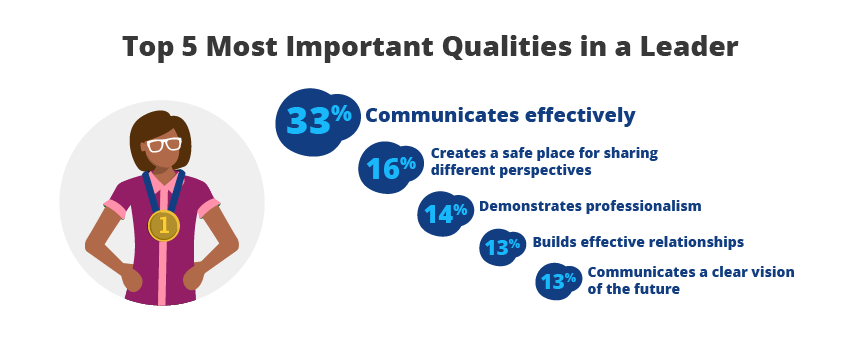
1. People Are Optimistic about the Future of Their Organization
After yet another whirlwind year in the workplace, Wiley found that the majority of survey respondents are optimistic about the future of their organization. A large majority of respondents also shared that managing the well-being of their people while achieving results continues to be a priority across the board.
People Skills Top List of 2024 Workplace Priorities
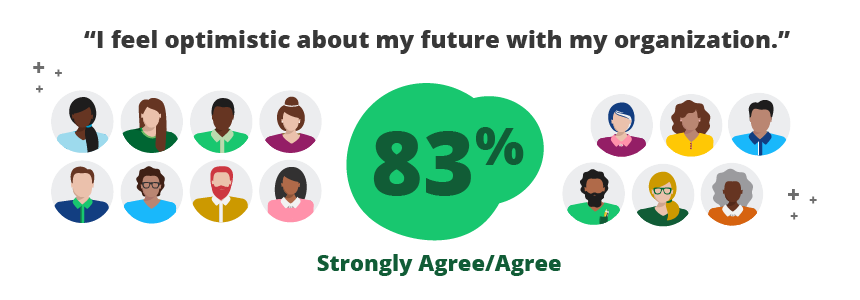
A theme that emerged in Wiley’s research throughout 2023 was that soft skills, or people skills, are high priorities for the individuals we surveyed and are not consistently prioritized in organizations. Whether you are looking to hone your interpersonal skills, team dynamics, or emotional intelligence, assessment and facilitated learning experiences like Everything DiSC® and The Five Behaviors® create the foundation for building the people/soft skills that make a positive impact in your organization.
To learn more, connect with Laura A. Davis and Associates, your Everything DiSC, PXT Select, and Five Behaviors Authorized Partner.




